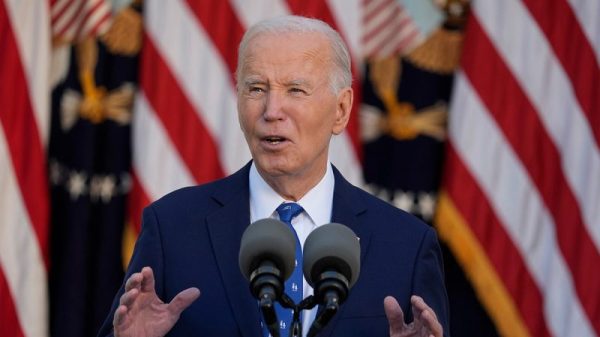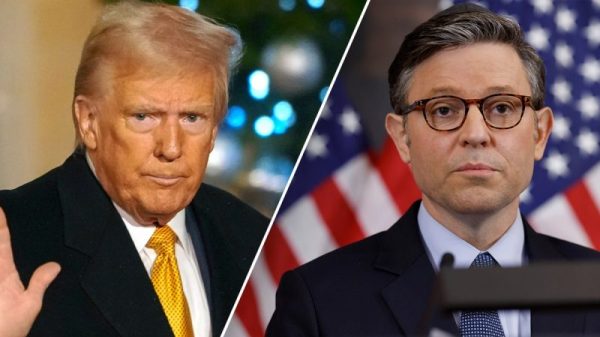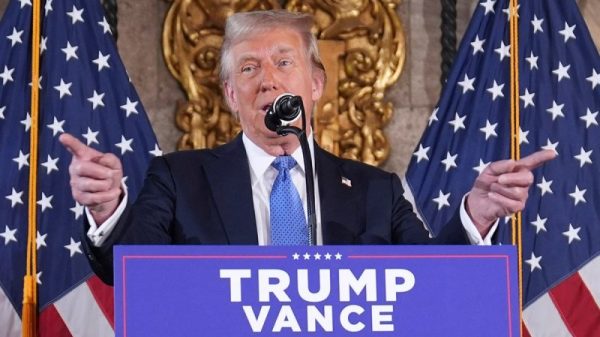In the wake of Donald Trump’s victory in the 2024 US presidential election, the cryptocurrency industry now faces the challenge of navigating a new political landscape with potentially significant implications for its future.
Trump’s upcoming presidency is expected to impact regulation, taxation and the integration of cryptocurrencies into the mainstream economy, raising questions about the direction this transformative technology will take under his leadership.
Throughout the election cycle, crypto-friendly voters advocated for a favorable regulatory framework, and the choices made at the ballot box will undoubtedly shape the industry’s trajectory.
With Trump’s electoral victory secure, the coming months will be crucial for the crypto industry as it adapts to new policies and initiatives.
In this article
How did the crypto sector influence the US election?
The industry was influential at both the federal and state levels leading up to election day.
In December 2023, in order to gain a toehold in the political sphere, a group of three affiliated super political action committees (PACs) backed by prominent figures in the crypto sphere revealed plans to invest a substantial US$78 million with the aim of supporting crypto-friendly candidates in their political campaigns.
Fairshake, one of the group’s three affiliated super PACs, has now raised upwards of US$200 million through donations from major stakeholders, including significant contributions from the Winklevoss twins and companies such as Kraken, Coinbase (NASDAQ:COIN) and Electric Capital Partners. The group reportedly spent around US$10 million on attack ads to sway voters against Representative Katie Porter (D) in California’s Senate race in March, which she ultimately lost. The Cedar Innovation Foundation, another super PAC group with unknown backers, reportedly engaged in similar lobbying efforts in January to unseat crypto cynic Senate Banking Chairman Sherrod Brown (D-OH).
Before President Biden withdrew as the Democratic candidate, Republicans were the primary beneficiaries of super PAC support. However, the situation changed almost immediately when Vice President Kamala Harris entered the race, although she remained tight-lipped on the issue for weeks following her nomination.
A new advocacy group, Crypto4Harris — which included billionaire and crypto advocate Mark Cuban and SkyBridge Capital founder Anthony Scaramucci — was quick to throw its support behind Harris, who was perceived as more receptive towards the industry.
At the Democratic National Convention on August 21, an aide to Harris’ team said she would “support policies to expand the industry.” Harris confirmed her position on the issue at a Wall Street fundraiser a month later while emphasizing that consumer protection is an equally paramount part of her “Opportunity Economy” pledge.
Later, at a rally in Erie, Pennsylvania, on October 14, Harris reaffirmed her commitment to supporting the crypto industry, stating that her administration would establish rules for digital assets.
Following this announcement, Chris Larsen, the co-founder of Ripple Labs, donated US$1 million worth of his company’s native tokens XRP to Future Forward, a significant super PAC that’s backing Harris’ run. Ripple Labs has been engaged in a years-long battle with the SEC over sales of XRP. Judge Analisa Torres ruled in Ripple’s favor in August, but the SEC reopened the case by filing a motion to appeal on October 2.
How is crypto currently regulated in the US?
The regulatory landscape for the crypto industry in the US is still evolving, and further developments are expected to occur in the coming years. As it stands, various government agenciesemploy diverse strategies to regulate different aspects of the industry, reflecting their unique mandates and objectives.
The US Securities and Exchange Commission (SEC) is the primary regulator of securities in the US and, under Chairman Gary Gensler, who was appointed by President Joe Biden, it has taken the view that many cryptocurrencies constitute securities and are therefore subject to federal securities laws.
The Commodity Futures Trading Commission (CFTC) is the primary regulator of futures and options contracts in the US. It is of the opinion that certain cryptocurrencies, such as Bitcoin and Ethereum, are commodities due to their decentralized nature and the fact that they are not backed by a government or other central authority.
Both regulators have taken action against crypto exchanges for breaking laws. Most notably, the CFTC brought charges against Binance founder Changpeng Zhao for violating the Commodity Exchange Act in March 2023. Meanwhile, the SEC has been involved in litigation against numerous crypto companies for years.
Majority party split on crypto regulation
Democrats are divided on the best approach to crypto regulation. While some have cited concerns that overregulation could stifle innovation, other representatives, like Senator Elizabeth Warren (D-MA), have advocated for more stringent policies, citing threats to national security without proper money-laundering provisions in place.
That division became evident when a resolution to overturn the SEC’s Staff Accounting Bulletin 121 (SAB-121) passed in the House in early May. The Republican-backed resolution requires firms that provide custody for crypto assets to record them as liabilities, arguing it would reduce regulatory burdens, enable crypto innovation and challenge the SEC’s evolving guidance on digital asset custody. Opponents said reversing the order would undermine the SEC’s authority, which put the measure in place to protect consumers and investors from fraud.
Despite Biden’s opposition and veto promise, the Senate voted to repeal SAB-121 with bipartisan support. Notably, Senate Majority Leader Chuck Schumer crossed party lines, potentially motivated by Trump’s support of crypto-friendly policies. This move signaled a shift in the political landscape as Democrats reassessed their stance on crypto regulation and appeal to the growing crypto community.
Biden did ultimately veto SAB-121, but the split among Democrats, as well as the SEC’s recent approval of spot Bitcoin and Ether exchange-traded funds, and the passing of three crypto-related bills, led some analysts to suggest that the party may be easing its approach to appease pro-crypto voters and gain the support of the crypto-backed super PACs.
Key US crypto legislation to watch
With cryptocurrencies becoming more mainstream, US lawmakers have been strongly encouraged to create a clear and comprehensive regulatory framework for this rapidly evolving industry.
FIT21 Act
The Financial Innovation and Technology for the 21st Century Act (FIT21) is the first federal bill specifically focused on cryptocurrencies to pass one chamber of Congress. It provides a comprehensive and clear regulatory framework, giving the CFTC greater regulatory authority for digital assets over the SEC.
Ranking members of the Democratic Party said they would not whip Democrat votes against FIT21 despite the party’s belief that it creates uncertainty and undermines established legal precedents in its current form. FIT21 received “overwhelming bipartisan support” in the House on May 22, passing with a vote of 279 to 136.
Former House Speaker Nancy Pelosi was one of the votes in favor of FIT21. When she was speaker, she accepted donations on behalf of the House Majority PAC from ex-crypto king Sam Bankman-Fried before his arrest in 2022. Sources for the American Prospect confirmed she was considering the motion days before the vote took place.
In addition to FIT21, Congressman John Rose (R-TN) introduced the BRIDGE Digital Assets Act to Congress on September 12. This bill seeks to establish a joint advisory committee consisting of members of the SEC and CFTC. It was referred to the Committee on Financial Services and the Committee on Agriculture. The House’s next session is scheduled for November 12 to 21.
Responsible Financial Innovation Act
For opponents, the Responsible Financial Innovation Act offers an alternative approach. The bill was a bipartisan effort that was reintroduced by Senators Cynthia Lummis (R-WYO) and Kirsten Gillibrand (D-NY) in July 2023. It has since been referred to the Committee on Banking, Housing and Urban Affairs.
The Act is similar to FIT21; however, there are also some differences between the two bills in terms of their specific provisions and approaches. For example, FIT21 places a greater emphasis on defining key terms and providing exemptions from duplicative regulations, while the Responsible Financial Innovation Act focuses more on consumer protection and combating illicit finance, goals that align with statements made by the White House.
Digital Asset Anti-Money Laundering Act
While the Responsible Financial Innovation Act seeks to provide a comprehensive framework for regulating digital assets, the Digital Asset Anti-Money Laundering Act aims to address concerns about money laundering and illicit finance in the digital asset space. The bill has 19 sponsors, including Republicans Lindsey Graham (R-SC) and Roger Marshall (R-KS), as well as Warren, a longtime political ally to the current president.
What does Trump think about crypto?
In response to the crypto industry’s growing influence in the political sphere, Trump shifted toward a supportive stance in the months before the election. After initial skepticism, his forays into the crypto world include the launch of his second collection of Trump Cards, a non-fungible token (NFT) collection on the Polygon blockchain; and his family’s crypto project World Liberty Financial.
In May, Trump became the first presidential nominee to accept donations in digital currencies, and criticized Biden and Gensler at a dinner for buyers of his NFT cards, telling pro-crypto attendees that they “better vote for Trump” if they want crypto in “any form.” In June, he advocated on Truth Social for all future Bitcoin mining to be done in the US.
While he hasn’t explicitly said how he plans to tax digital assets, Trump is a prominent proponent of lower taxes. His administration signed the Tax Cuts and Jobs Act into law in 2017, the largest tax code change made in decades. Provisions within the act are set to expire in 2025, although Trump has said he will make them permanent. The Congressional Budget Office has estimated these tax cuts would deduct billions from the US revenue base annually beginning in 2027.
At a rally in New Jersey in mid-May, Trump promised voters that he would impose further tax cuts, lowering the maximum capital gains tax rate from 20 percent to 15 percent. This would affect crypto assets, as the Internal Revenue Service (IRS) treats cryptocurrencies as property, making transactions subject to capital gains and other taxes.
According to Section 1031 of the tax code, some capital gains taxes can be deferred for like-kind exchanges — in other words, investments that are of the same nature or character, even if they differ in size or value. The IRS concluded in 2021 that only “real property” can qualify for tax deference as like-kind exchanges, excluding swaps of cryptocurrency. However, some attorneys disagree with that classification.
Trump spoke at the 2024 Bitcoin Conference in Nashville on July 27, promising friendly regulations and the creation of a strategic Bitcoin stockpile for the US. A draft of legislation to support a Bitcoin reserve was introduced by Senator Cynthia Lummis (R-Wy) at the event following Trump’s speech. The draft legislation for the reserve fund briefly mentions that it would contribute to reducing the US national debt, but it lacks specific details on how this would be achieved. Trump was notably tight-lipped on the issue during a recent interview with Elon Musk.
It’s worth noting that a special-interest group called Project 2025 has developed a 900 page conservative policy agenda called the Mandate for Leadership that includes strategies to shift the power of the IRS and other agencies toward the executive branch. Additionally, the document recommends that the SEC and the CFTC collaborate to delineate the distinction between digital assets that are classified as securities and those that are considered commodities.
The group was organized by the Heritage Foundation, a conservative think tank that has influenced Republican policies in the past, including during Trump’s presidency.
Investor takeaway
Trump’s statements in recent months suggest a permissive stance toward crypto if he is elected. Most crypto experts advocate for a regulated approach, arguing that increased regulatory efforts have served as an incentive for more serious investors.
Ultimately, the outcome of the election will have important implications for the future of crypto regulation and the broader crypto industry.
Securities Disclosure: I, Meagen Seatter, hold no direct investment interest in any company mentioned in this article.






































